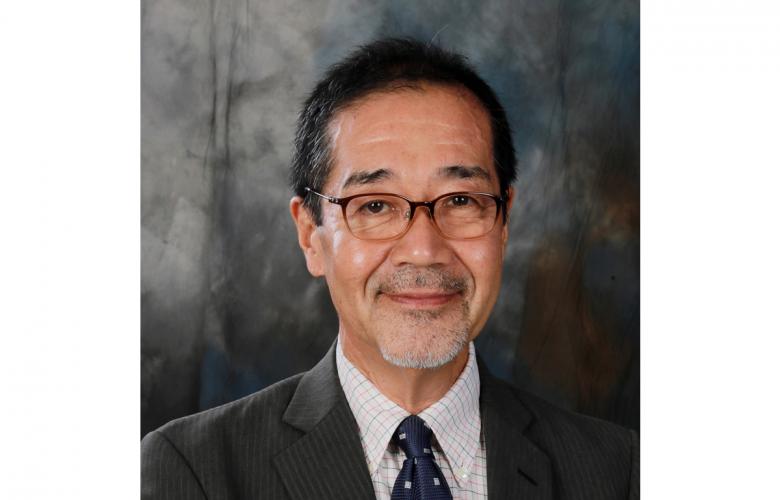Get to know Hiro Isobe of Japan Valuers Myanmar
Contact
Get to know Hiro Isobe of Japan Valuers Myanmar
WILLIAMS MEDIA spoke to Hiro Isobe about his experience in real estate and Myanmar's property market.
Hiro Isobe is the chairman and founder of Japan Valuers Co., Ltd. in Tokyo, Managing Director of Japan Valuers (Myanmar) Co., Ltd., Executive Chairman of Japan Valuers (Cambodia) Co., Ltd., and a founding partner of International Realty Valuation, Inc. in California, USA. Japan Valuers are a company specialising in the valuation of real estate and assets and provide counselling services including market, marketability and feasibility analysis. Having been in the field for over 40 years in Japan, and accomplishing a number of assignments overseas, Japan Valuers Myanmar is the first overseas corporation.
Hiro has been actively engaged in real estate evaluation since 1978 and is a certified real estate appraiser.
WILLIAMS MEDIA spoke to Hiro Isobe about his experiences in the real estate industry, and in particular, Myanmar's property market.
What are the defining moments in the Yangon real estate/expat history?
It must have been in 2012 when President Thein Sein started to open up the country after 50 years of isolation from the rest of the world. There had been few international grade developments during isolated periods because there had been limited demands due to a small number of visitors from foreign countries. Because of the shortage of supply, we had seen extraordinary high price of housing/office/accommodation or any other criteria in real estate in Yangon for a few years after 2012. Although it has been gradually stabilised for the last few years because of the rapid increase in supply, too many development activities without prudent planning, on the other hand, have caused oversupply and an even rapid decrease of prices. In other words, it would take several more years for the real estate market to get on a sound track where the market is linked with the growth of the economy.
Where are the key emerging markets that people should be looking to in Yangon that you think will have an upside?
Where large multi-complexed style developments are concerned, we have seen and will continue to see many projects in the area outside downtown, the north of downtown in particular. However, these projects in the outskirt of downtown need to be self-contained within the community because of a lack of public transportation. As the existing circular line is modernised and improved and/or new subway systems are constructed, the locational hierarchy may be restructured in accordance with the access to the stations. In addition, the downtown location may be re-recognised because it is downtown and is convenient even though it is difficult to redevelop all of the downtown areas.
Why did you first come to Yangon to focus on real estate?
Across a range of developed and developing countries, the licensed role and systems of valuation/appraisal professionals are well-developed. However, Myanmar and Laos are the only countries in ASEAN where there are no such systems in place. By bringing Japan Valuers to Myanmar we have been able to introduce what valuation is, and how vital it is to the decision-making process in Myanmar's property market.
What advice would you have for those looking to come into markets like Myanmar and set up business?
Considering the population number, the abundant natural resources, and industriousness of the people in Myanmar, I think that the Per Capita Income is going to catch up with the level of $2,000 p.a, which is the starting point where people begin to recognise themselves as middle class. In other words, there should be a huge potential in the local market. Therefore, those businesses focusing on the newly growing local people would be the target.
Who is your typical client?
Japan Valuers have a number of different clients that require the services we provide. Some are Japanese companies located in Myanmar or interested in Myanmar. Some are local companies that require our valuation services for financing. And some are foreign companies that interested in investing in Myanmar.
What do you do for your clients and how do you best help them?
Although market data is already available for the offices, residences, condominiums, hotels etc. there are very limited sources available to identify land transactions. This is primarily due to the lack of transparency as well as the complexity of land tenure in Myanmar. Japan Valuers try to identify market trends through our communications with real estate professional networking. We do this so that clients also have a good understanding of what is really happening in the market.
What would you like to see changed in the industry in 5 years?
There are a number of changes I would like to see happen in Myanmar's property industry within the next five years. I would like to see valuation services established by law and that real estate agent laws will be enforced. I would also like to see greater attention be paid to ensuring the system and all its process are transparent and that market data will be openly available to both real estate industry professionals and also the public.
What are some key opportunities in the marketplace at the moment?
Some key marketplace opportunities include reasonably priced condominiums for middle to upper-middle-class locals; stronger logistics infrastructure to combat the lack of effective delivery systems; and the opportunity for more resort style hotels in Bagan, Inle and beach areas of the west and south.
What advice do you have for people looking to buy property in Yangon?
Current Myanmar law stipulates that foreigners are unable to purchase property in the country, regardless of the type of tenure. Under the New Condominium Law, foreigners are only able to buy units under certain conditions. But it is important to recognise that there have been no new condos which meet government requirements. It should also be noted that a 70-year long-term land lease, which is the most practical way of holding land, still requires relevant legal processes even though this has been eased in recent years.
What advice do you have for people looking to sell property in Yangon?
Normally, the selling price asked by sellers in Myanmar looks quite high. And I have seen land parcels on offer for sale for a few years without the asking price changing. But I would always advise both buyers and sellers who are not familiar with the market to contact and listen to reliable local property experts before buying or selling a property.
Are there any particular trends in demand or foreign investment you are seeing at the moment?
Frankly speaking, foreign investments are not as active as they were a few years ago. This may be due to the Bengal issues in the Rakhine State. However, I am optimistic looking towards the medium term.
Where do you see the Yangon property market in 10 years and what needs to happen to get us there?
Although transparency in regard to the tenure as well as the availability of market information is to be improved, I think that the market volume and the quality of the product in 10 years will be better than what is available in Phnom Penh or Hanoi or Ho Chi Minh City.
For more information about Myanmar's property market email Hiro Isobe via the contact details listed below.
Similar to this:
Get to know Karlo Pobre - Associate Director, Colliers International
Announcing my departure from Colliers International
Get to know John Pellegrini from Slade Property Services, Myanmar







